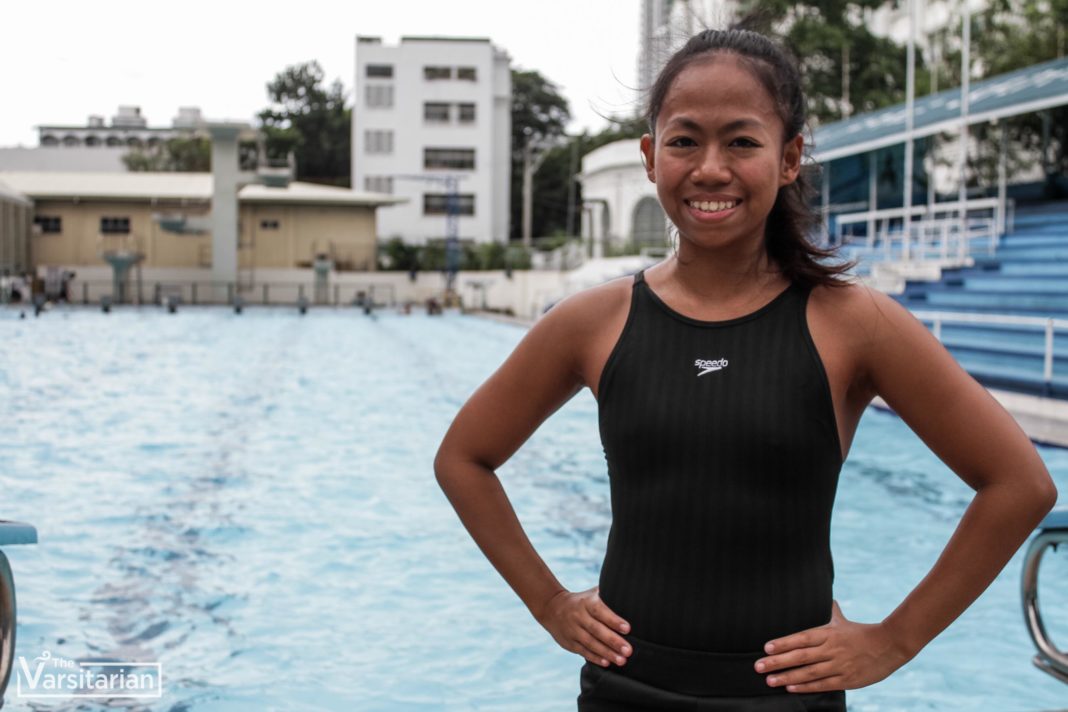WHILE most student-athletes make names for themselves through the collegiate conferences like the UAAP and NCAA, Jemimah Tiambeng made a splash as a member of the national synchronized swimming team.
But the 26-year old was not your average student-athlete.
Alongside performing intricate maneuvers in the pool, Tiambeng digested a pile of case readings as a student at the Faculty of Civil Law, where she graduated from last June 2.
“You have to be disciplined,” Tiambeng told the Varsitarian.
“’Yong discipline mo sa work habits, maganda ‘yong work ethic mo in terms of studying… parang hahatiin mo ‘yong priorities mo.”
Tiambeng’s daily routine involved training from 7 to 11 in the morning. She would study after and attend classes in the evening.
“After school, magre-review ako para wala ako masyadong backlogs until about 2 or 3 a.m.,” she added.
Tiambeng, who also earned her legal management degree from UST, admitted that it was not an easy feat to meet the demands of both academics and athletics.
Ballet in the pool
Tiambeng took up various sports when she was young. She trained as a ballerina, competitive swimmer and diver.
She went as far as joining the Philippine diving team but an accident prompted her to quit. “One time in training, plumakada ako and it really hurt. So I stopped for a while,” she recalled.
“When I saw synchro, sabi nga ng coach ko to join kasi para siyang pinaghalong diving, ballet and swimming. In-encourage niya ko,” she said.
Tiambeng trained with Synchronized Swimming Philippines for three years before formally joining the team in 2011.
She has collected a total of 17 medals in international competitions such as the Thailand Synchronized Swimming Open and Age Group, Sunsmart Synchronized Swimming Championships, Asia-Pacific Synchronized Swimming Championships and Asian Swimming Championships.
She earned her lone gold medal at the Panasonic Hong Kong Synchronized Swimming Championships in 2011under the Solo Free Routine category.
In 2015, Tiambeng also competed in the Southeast Asian (SEA) Games, which she considered her most memorable but also grueling experience as a student-athlete. She was in her second year in law school at the time.
“I usually train five hours a day pero nung SEA Games ‘yong pinaka-hectic. I trained eight hours a day and went to school after,” she said.
Tiambeng’s tight schedule prompted her to fall behind—and even fail—in some classes.
She kept herself motivated when she is reminded of the struggles of other law students.
“Hindi naman din excuse ang [pagiging] athlete eh. Like especially ‘pag kunwari, ‘di ka nakasagot sa recitation, dapat naba-balance ko siya,” she said.
“’Yong mga working students sa batch ko … ang gagaling nila. Hindi excuse ang may ginagawa kang iba,” she added.
Unpopular sport
Tiambeng hopes her fellow synchronized swimmers will gain recognition since the sport is unpopular in the country.
Once she becomes a full-fledged lawyer, Tiambeng said she will continue to support the national team.
“If I were a lawyer na, I could get sponsors for the team din. Kasi usually ang mahal ng equipment namin. The costumes and swimsuits are so expensive,” she said.
Tiambeng will skip the Bar Exams this November to give way for the SEA Games. After that, she plans to leave the pool for good to practice labor and family law.














